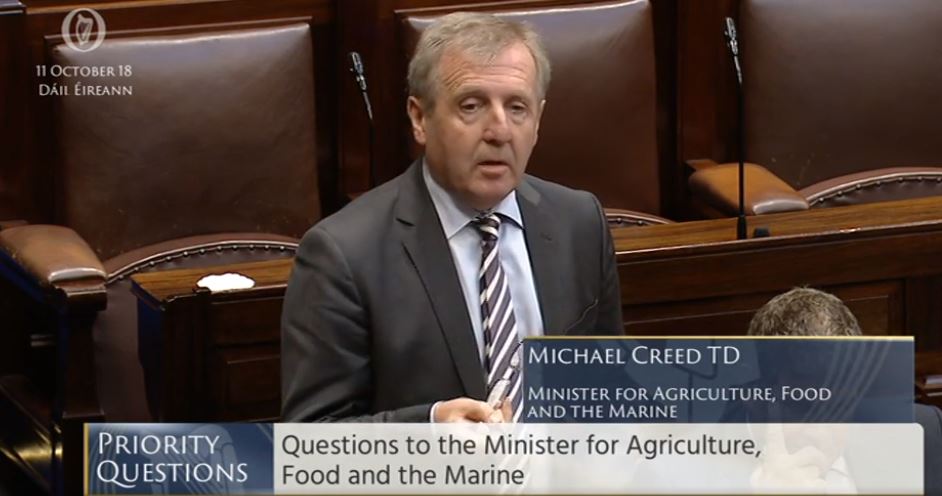Minister for Agriculture, Food and the Marine, Michael Creed, has said the EU-Mercosur Agreement is “not a done deal” and that work needs to be done to “mitigate excesses” in the arrangement.
Speaking in the Dáil on the topic yesterday evening, Tuesday, July 9, the minister said: “The beef element of this trade proposal is challenging for our agri-food sector.
“In the period ahead where we move to a legal document, there will be opportunities to influence that.”
On the 99,000t beef quota offered under the deal, Minister Creed said: “We need to work to mitigate the excesses of the proposal by ensuring that we can invoke the labour element, the climate issues and sanitary and phytosanitary (SPS) standards, to limit the damage this will do to our sector.
That is the opportunity I see to thwart the ambition on the other side.
On the agreement as a whole, Minister Creed said: “I do not believe we have a deal. We have the outline of an arrangement that must be given legal effect. When we ultimately have a deal, it will be a decision for the Oireachtas at that stage.
“My responsibility is to ensure that in that intervening period, we work with like-minded people and use the institutions of the European Union and the state to ensure we get to a point where we thwart, diminish and frustrate the ambition contained in that headline agreement so as to secure the best possible deal.”
The minister said that the “best possible deal” would bring a “levelling of the playing pitch” on standards such as environmental, traceability and veterinary medicine, putting the same standard obligations on product coming in to European supermarket shelves as that of Irish meat.
“This is the challenge,” he added.
“In the intervening period we will of course do an appropriate assessment of the deal, investigating not only its economic impact but its environmental effect.
There is opportunity in that space to ensure the legal document ultimately drafted protects our farmers from unfair trade.
The ultimate ambition is to have fair trade and, in the context of that fair trade, if we are not fighting with one hand behind our backs, our producers can compete with anybody,” the minister said.
